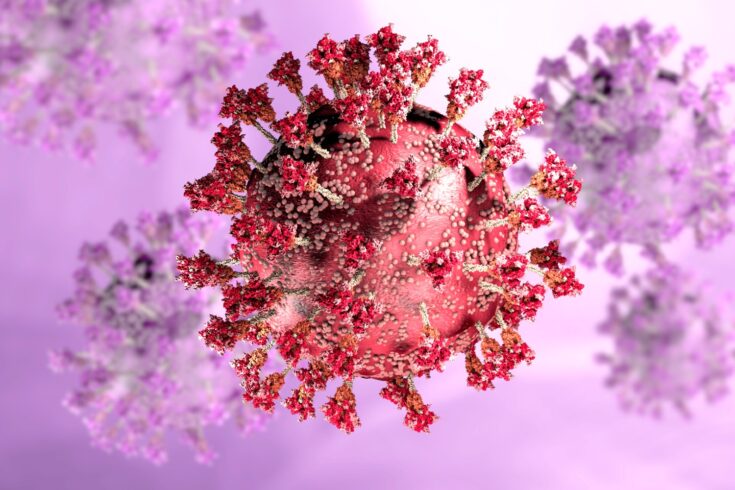The protection offered by COVID-19 vaccination declines more rapidly in people with severe obesity than in those with normal weight, UK Research and Innovation (UKRI)-funded scientists at the Universities of Cambridge and Edinburgh have found.
Clinical trials have shown that COVID-19 vaccines are highly effective at reducing symptoms, hospitalisation and deaths caused by the virus, including for people with obesity.
During the pandemic, people with obesity were more likely to be hospitalised, require ventilators and to die from COVID-19.
In this study, the researchers set out to investigate how far two of the most extensively used vaccines protect people with obesity compared to those with a normal weight, over time.
Building on previous studies
Previous studies have suggested that antibody levels may be lower in vaccinated people who have obesity and that they may remain at higher risk of severe disease than vaccinated people with normal weight. The reasons for this have, however, remained unclear.
Today’s study, published in the journal Nature Medicine, shows that the ability of antibodies to neutralise the virus declines faster in vaccinated people who have obesity.
The findings have important implications for vaccine prioritisation policies around the world.
EAVE II study
A team from the University of Edinburgh, led by Professor Sir Aziz Sheikh, looked at real-time data tracking the health of 3.5 million people in the Scottish population. This was done as part of the EAVE II study, which is funded by the Medical Research Council (MRC).
The study is also supported by BREATHE, the Health Data Research Hub for Respiratory Health, which is funded through UKRI’s Industrial Strategy Challenge Fund and delivered by Health Data Research UK.
They found that people with severe obesity (a body mass index (BMI) greater than 40 kilograms per meter square) had a 76% higher risk of severe COVID-19 outcomes, compared to those with a normal BMI.
A modest increase in risk was also seen in people with obesity (30 to 39.9 kilograms per meter square), which affects a quarter of the UK population, and those who were underweight.
Important and timely insights
Professor Sir Aziz Sheikh said:
Our findings demonstrate that protection gained through COVID-19 vaccination drops off faster for people with severe obesity than those with a normal body mass index.
Using large-scale data assets such as the EAVE II Platform in Scotland have enabled us to generate important and timely insights that enable improvements to the delivery of COVID-19 vaccine schedules in a post-pandemic UK.
Sars-COV-2 ResPonse In Obesity (SCORPIO) study
The University of Cambridge team was jointly led by Dr James Thaventhiran from the MRC Toxicology Unit and Professor Sadaf Farooqi from the Wellcome-MRC Institute of Metabolic Science.
As part of the SCORPIO study, also funded by MRC, they looked at people with severe obesity attending Addenbrooke’s Hospital in Cambridge and compared the number and function of immune cells in their blood to those of people of normal weight.
They studied people six months after their second vaccine dose and then looked at the response to a third ‘booster’ vaccine dose over time.
The Cambridge researchers found that six months after a second vaccine dose, people with severe obesity had similar levels of antibodies to the COVID-19 virus as those with a normal weight.
But the ability of those antibodies to work efficiently to fight against the virus, known as ‘neutralisation capacity’, was reduced in people with obesity.
A challenge for health services
Dr James Thaventhiran, a Group Leader from the MRC Toxicology Unit in Cambridge and co-lead author of the SCORPIO study said:
It is promising to see that booster vaccines restore the effectiveness of antibodies for people with severe obesity, but it is concerning that their levels decrease more quickly, after just 15 weeks.
This shows that the vaccines work as well in people with obesity, but the protection doesn’t last as long.
Professor Sadaf Farooqi from the Wellcome-MRC Institute of Metabolic Science and co-lead author of the SCORPIO study said:
More frequent booster doses are likely to be needed to maintain protection against COVID-19 in people with obesity. Because of the high prevalence of obesity across the globe, this poses a major challenge for health services.
Further information
A.A. van der Klaauw et al., ‘Accelerated waning of the humoral response to COVID-19 vaccines in obesity’, Nature Medicine (2023). DOI: 10.1038/s41591-023-02343-2

